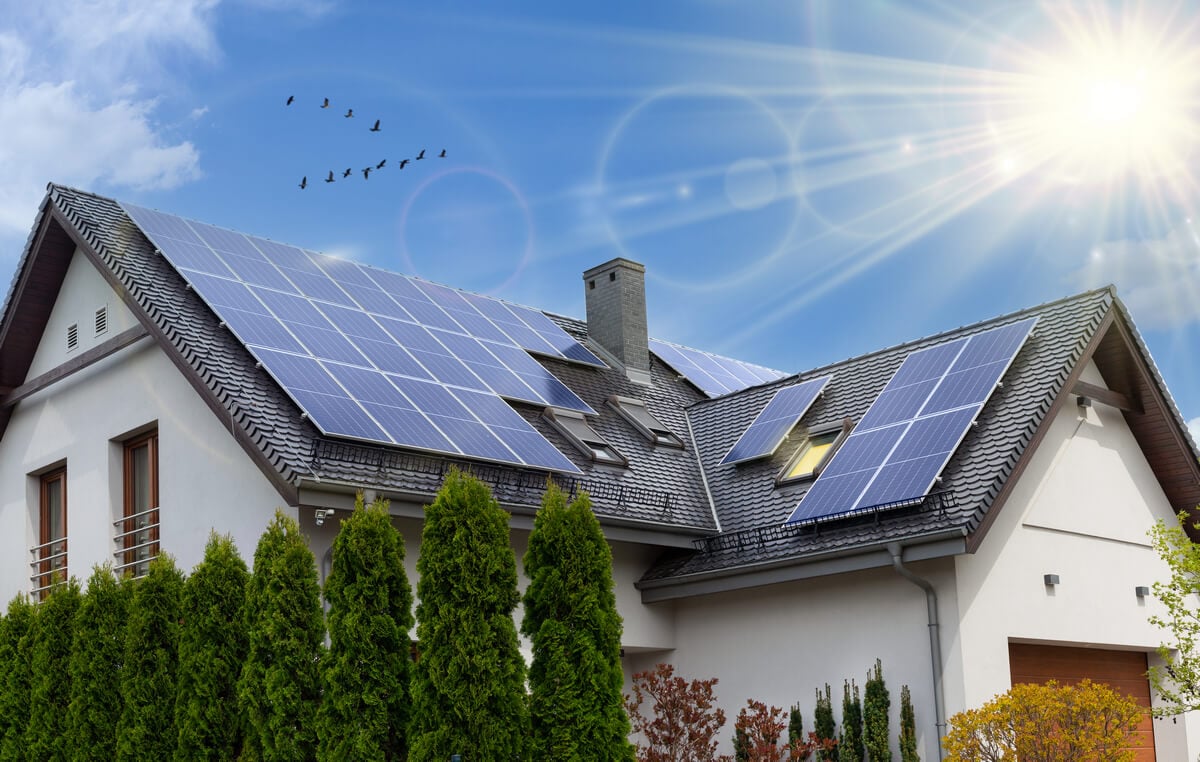Solar is one of the most popular forms of renewable energy, and it’s one of the most accessible clean energy options for homeowners. Installing solar panels can be a great way to reduce your utility bills while also minimizing your carbon footprint. Solar panels are a major investment, though, so it’s important to do your research before installing them. Here’s everything homeowners should know about solar panels:
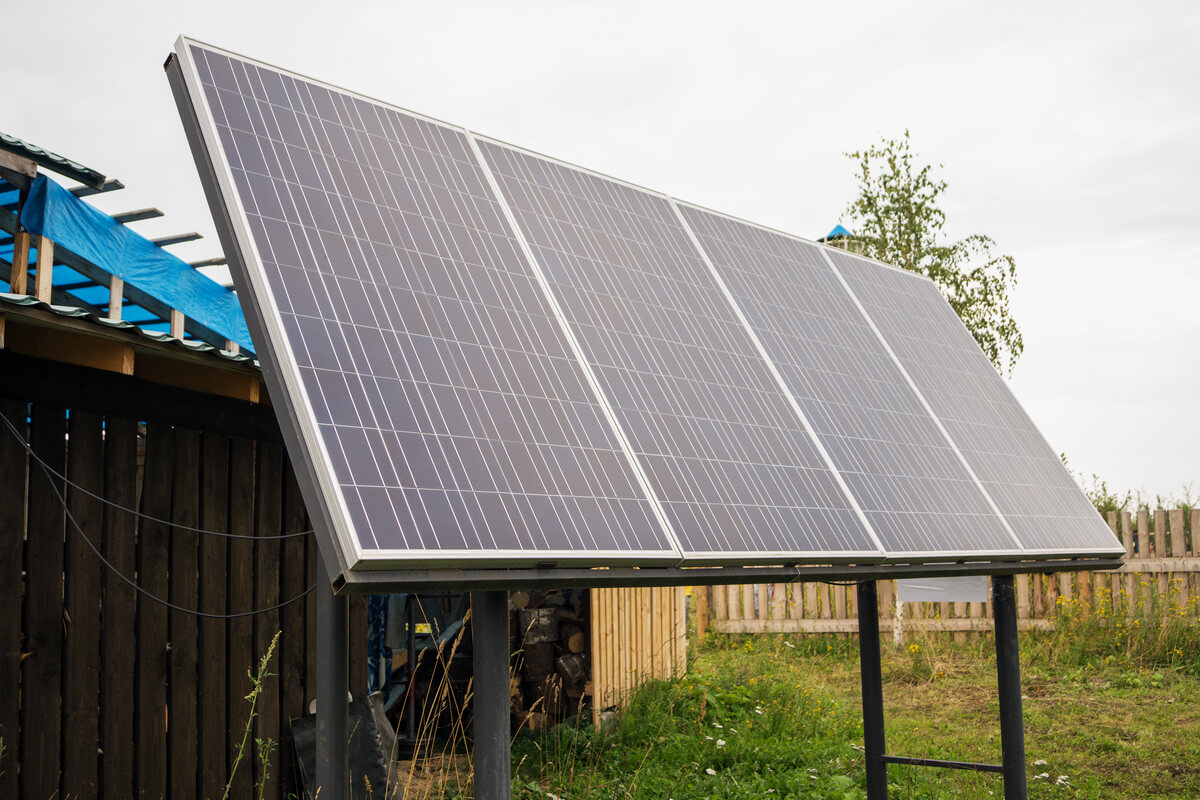
How Solar Panels Produce Energy
Solar panels contain photovoltaic (PV) cells that are made from silicon or other semiconductor materials. The top layer of the cell has extra electrons, giving it a negative charge. The lower layer has fewer electrons, giving it a positive charge. These opposing charges create an electric field. As particles of light from the sun hit the panel, electrons in the cell are knocked loose. The electric field then sets the electrons into motion, which creates a current.
The electricity created by solar panels originates as a direct current (DC). Homes typically use alternating current (AC) energy, though, so the system’s next step is to convert the DC electricity into AC electricity with an inverter. After the electricity is converted, it is sent to the electrical panel to be distributed throughout the home.
On sunny days, your solar panels may produce more electricity than you need. Overnight and on cloudy days, they may not generate enough energy. Solar panel systems often use a meter that measures the amount of electricity your home produces and uses. Any electricity that your home doesn’t consume is sent to the utility grid, and you can receive credit for providing this energy. When your solar panels aren’t producing enough electricity, you can pull additional electricity from the grid.
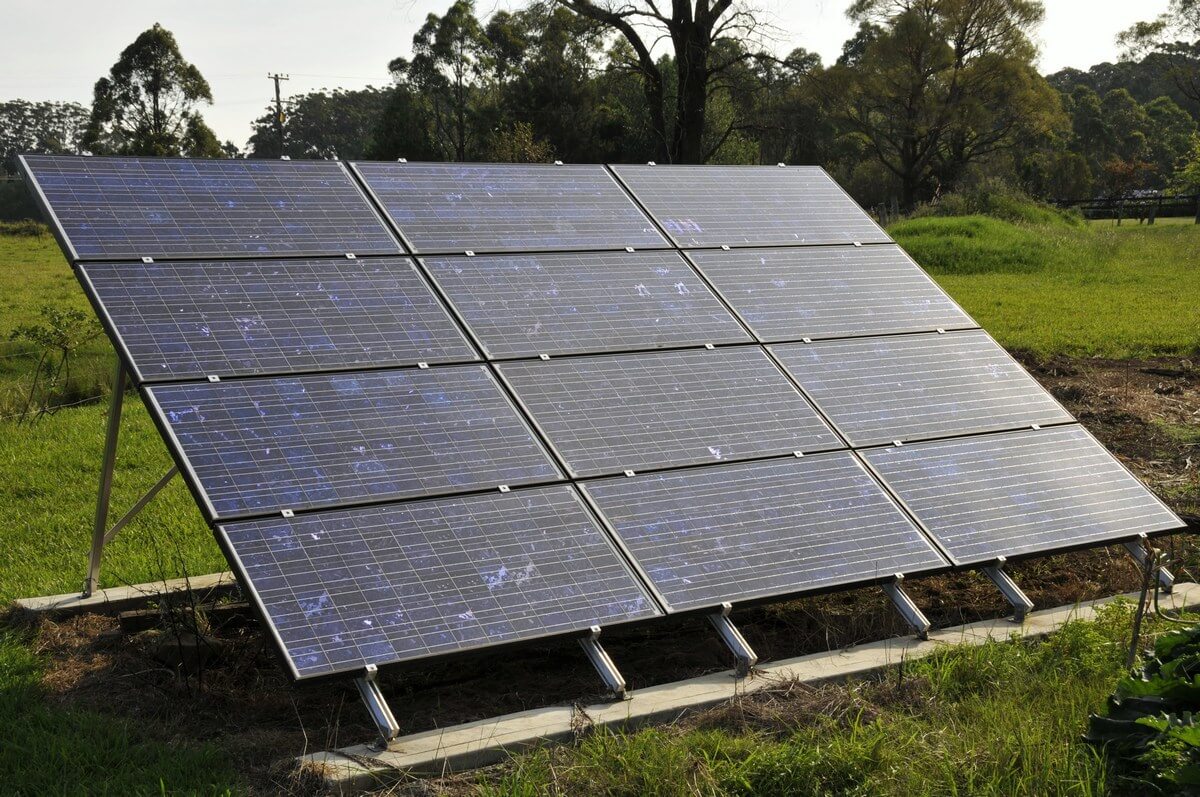
Solar Panel Lifespan
Solar panels typically have a lifespan of 25 to 30 years with regular upkeep and maintenance. At this point, they may not break completely, but they’ll likely become less efficient.
There are a number of factors that affect the lifespan of solar panels. Extreme weather events can impact solar panels, so panels may not last as long in areas that experience heavy snow, extreme temperatures, or intense wind. The quality of the panels makes a significant difference, too. Solar panels made with lower-quality materials will start to degrade much faster than high-quality panels.
Decreased power output is the most noticeable sign that your solar panels are broken or worn out. Flickering lights or other electrical issues can also be a sign that your solar panels need repair. You should also keep an eye out for visible damage such as cracks, chips, discolored cells, or burn marks.
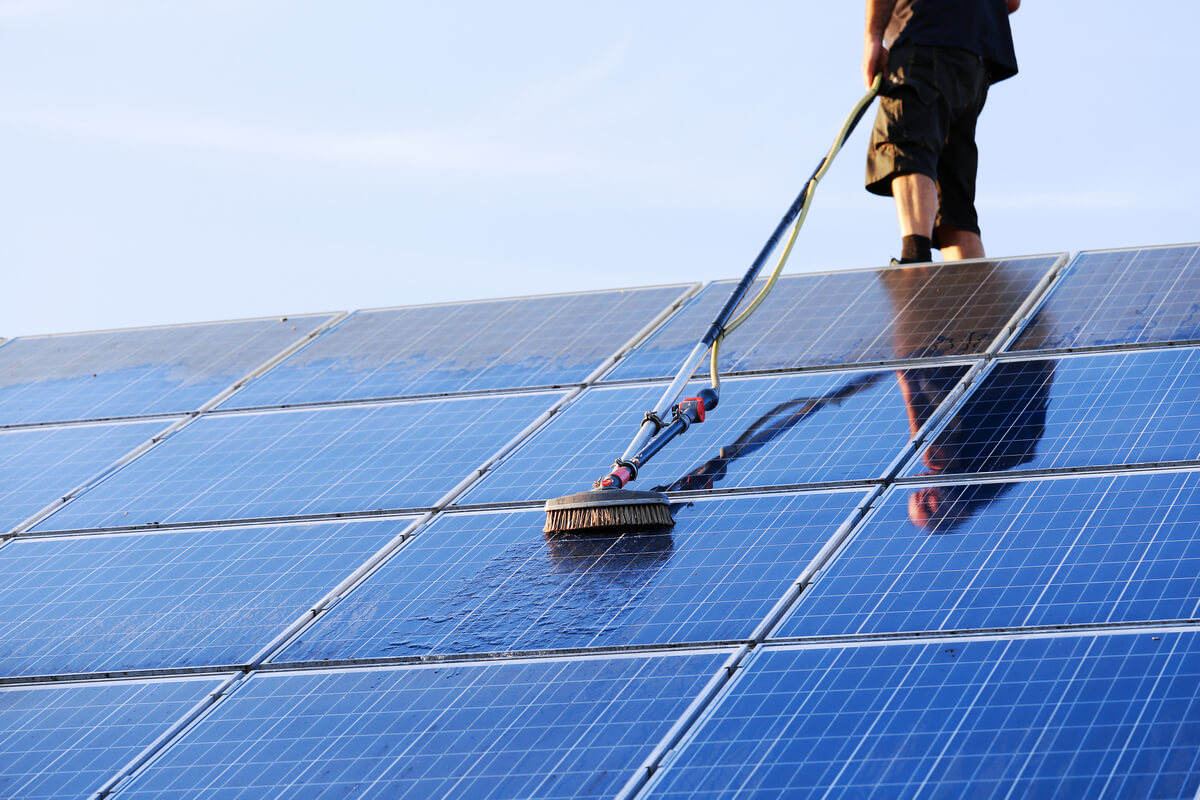
Solar Panel Cleaning and Maintenance
You should never attempt to repair solar panels on your own. Working on electrical systems without the proper training puts you at severe risk of injury. However, some homeowners clean their solar panels on their own. Regular cleaning is especially important if you live in a dry or dusty location. Cleaning the panels prevents dust, dirt, leaves, or bird droppings from blocking the sunlight.
You can use a scrub brush or squeegee and soapy water to gently remove dirt or grime from the panels. Avoid using chemical cleaners as they could leave permanent marks. If you’re at all concerned about going onto your roof to clean the panels, don’t hesitate to hire professional cleaners. You should never feel unsafe when working on your home, and professionals have the equipment and expertise needed to get the job done quickly and effectively.
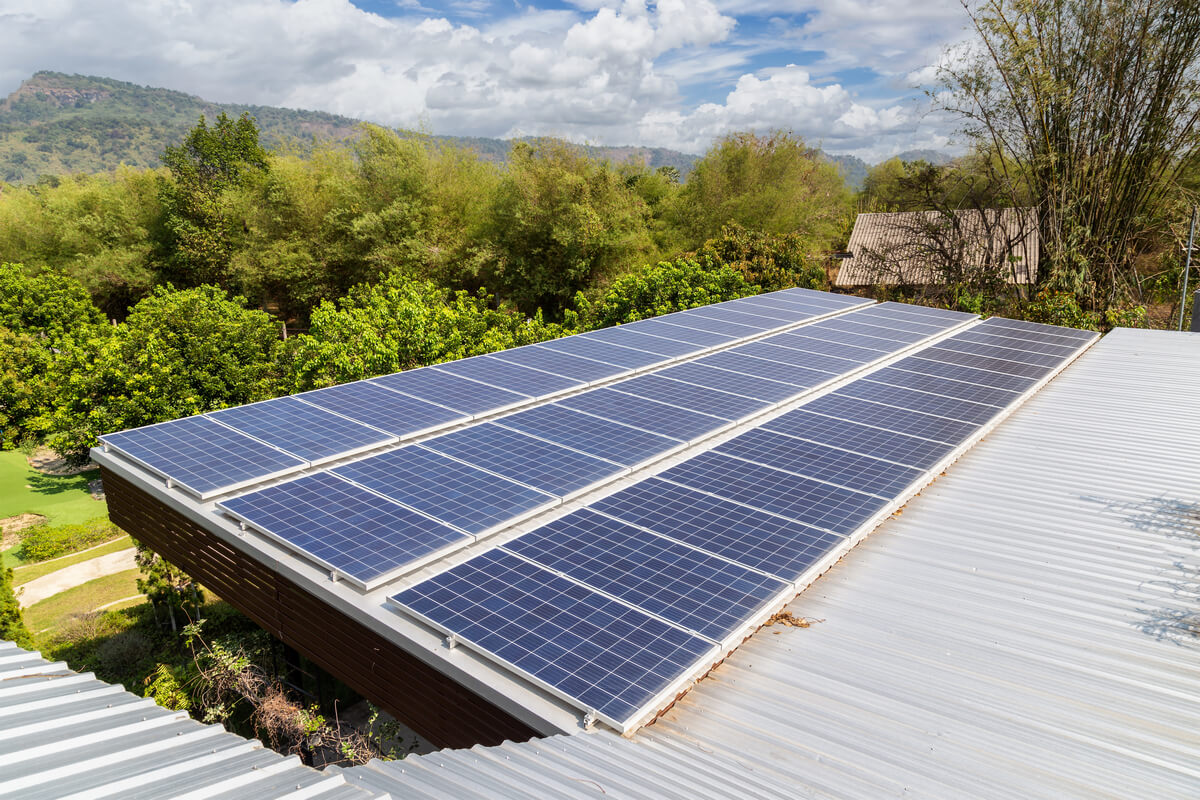
Candidates for Solar Panels
Not every house is the perfect candidate for solar panels. You should consider several factors before purchasing solar panels for your home. First, evaluate how much you spend on your electric bill. Solar is usually a cost-effective option if you spend more than $75 per month on electricity.
Your roof also must get enough sunlight for solar panels to be a viable option. Solar panels work best in regions that get plenty of sunlight. You don’t need to live in a hot climate to use solar power, but solar is not always a great option in regions with harsh winters because snow covers up the panels.
The orientation of the roof and the conditions around your property are important factors as well. In North America, roofs facing south get the most direct sunlight. If your home is surrounded by trees or tall buildings, your roof may not get enough direct sunlight to support solar energy. A professional can assess your home to determine whether it’s a good fit for solar panels.
The type of roof you have makes a difference, too. A metal roof is the best candidate for solar panels because the seam allows for easy installation. Concrete tile, asphalt shingles, or composite tiles are generally strong enough to support solar panels. Roofs made from wood, slate, or certain other materials may not be compatible with solar panels, but you may be able to install them elsewhere on your property.
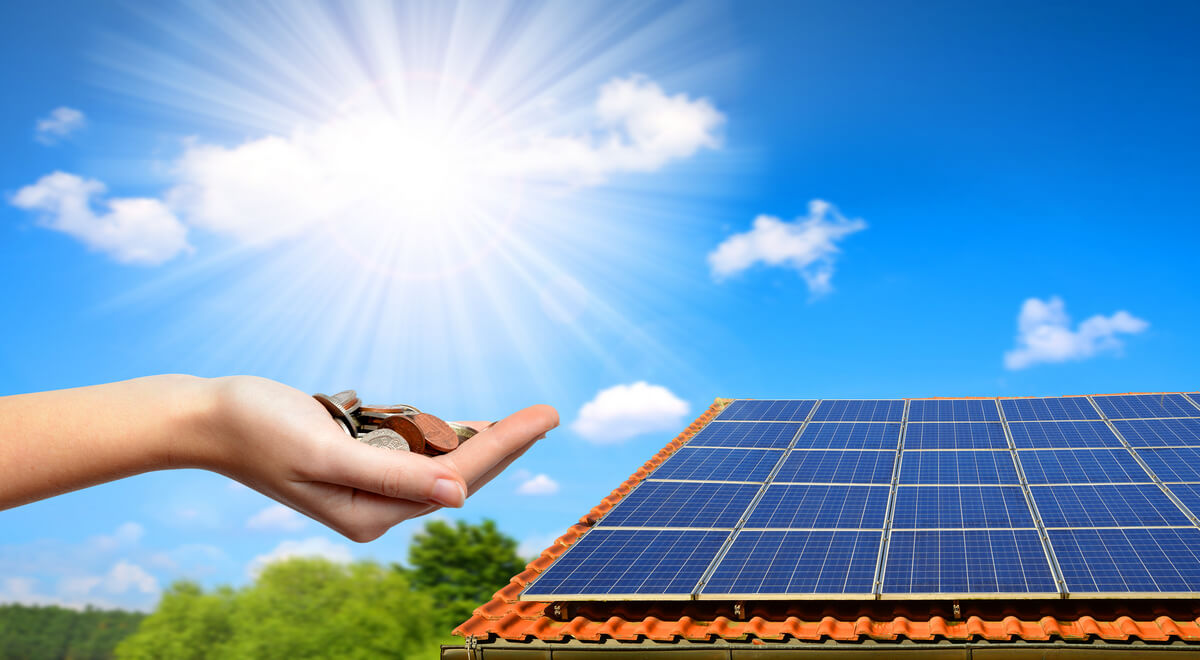
Cost Savings With Solar Panels
Solar panels almost always save homeowners money over time. Installing solar panels can cost anywhere from $10,000 to $30,000, but the average price is about $16,000. While the cost to install solar panels is significant, solar energy dramatically reduces your electric bill. Solar panels usually pay for themselves within six to 10 years due to the utility cost savings. You’ll see more significant savings if your roof gets lots of direct sunlight.
There are also tax credits to incentivize homeowners to invest in solar panels. The Federal Solar Tax Credit allows you to recoup a percentage of installation costs when you file your taxes. For systems installed between 2022 and 2032, homeowners can claim 30% of installation costs as a tax credit. Some states offer tax credits and rebates for solar panels as well.
Solar panels can increase the value of your home, too. Most buyers consider solar panels to be an upgrade and are willing to pay up to $15,000 extra for a home with solar panels. In some areas, homes with solar panels also sell faster than homes without them.
Solar panels are an excellent investment in most cases. They reduce your electricity costs significantly and can last for decades with proper upkeep. Although they require a big initial investment, many homeowners find that the upfront cost is worth it in the long run. If you’re considering installing solar panels, you can contact a professional in your area to find out if your home is a good candidate.





